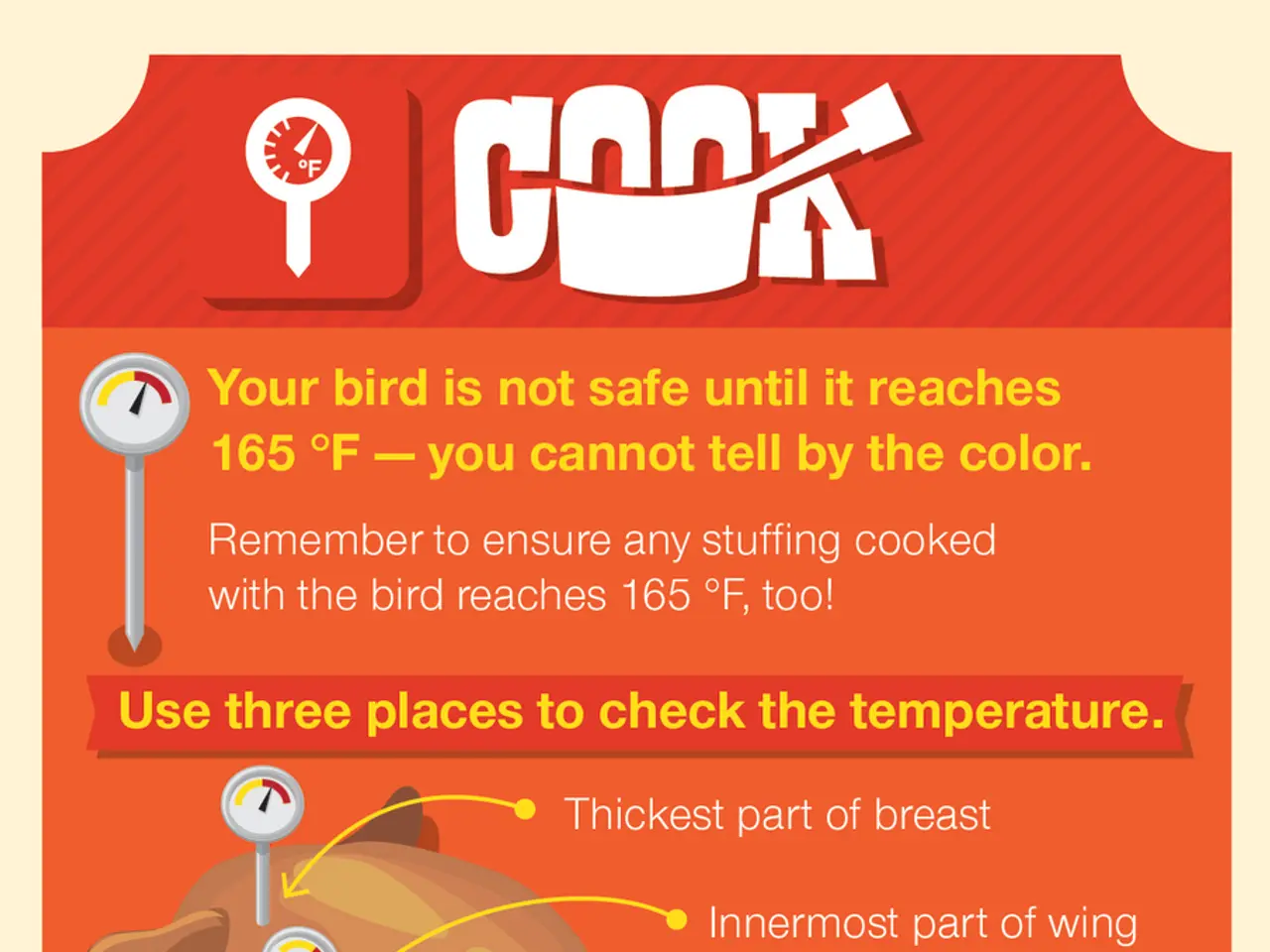Understanding the Various Aspects of 'Free-Roaming' Chickens
In the rapidly evolving world of food production, consumer concern about animal welfare has led to a rise in free-range farming. However, the lack of a legally binding definition of 'free range' has resulted in some factory-farmed chickens being mislabelled as higher welfare.
This article provides a comparative summary of three main chicken meat accreditation systems: FREPA, Australian Certified Organic (ACO), and the RSPCA's Approved Farming Scheme.
1. FREPA (Free Range Poultry Association)
FREPA, a UK-based industry group, promotes best practices in free-range poultry farming. Their standards typically emphasize outdoor access, lower stocking densities compared to conventional systems, and certain welfare provisions like enrichment. However, they may be less prescriptive or rigorous than some third-party welfare labels. Audits might be internal or carried out by associated bodies, but FREPA itself functions more as an industry association than a certification scheme with standardized, frequent third-party audits.
2. ACO (Australian Certified Organic)
ACO certification includes stringent organic standards that incorporate animal welfare requirements. Animals must have access to outdoor areas, natural feed, and no use of synthetic chemicals or antibiotics. The welfare standards are holistic, combining organic farming principles with good welfare practices. Certification involves annual audits by third-party certifiers to ensure ongoing compliance with both organic and welfare standards.
3. RSPCA Approved Farming Scheme (UK)
The RSPCA Approved Farming Scheme is widely regarded as one of the highest welfare certifications for farm animals in the UK. The standards require lower stocking densities than legal minimums, enriched environments (perches, pecking substrates), access to outdoor ranges with vegetation, and strict controls on lighting and management to reduce stress and improve natural behaviors. The RSPCA standards go beyond legal requirements and industry norms, making them very robust in terms of welfare. RSPCA Assured farms are audited regularly, mostly annually, by independent certification bodies to verify compliance with welfare standards.
Summary Table:
| Certification Scheme | Welfare Standards | Auditing Frequency | |-------------------------------|----------------------------------------------------|-----------------------------------| | FREPA | Good basic welfare; outdoor access; industry-led | Less formalized; varies; not always 3rd-party annual | | ACO (Australian Certified Organic) | Organic welfare standards; outdoor access; natural feed; no antibiotics | Annual third-party audits | | RSPCA Approved Farming Scheme | High welfare; enriched environments; low density; outdoor access | Annual independent audits |
Overall:
- RSPCA Approved has the most stringent and welfare-focused standards, with regular third-party auditing.
- ACO integrates welfare within an organic framework with formal annual audits, emphasizing natural living conditions.
- FREPA promotes free-range best practices but with less formal and less frequent auditing; standards may be less comprehensive.
If animal welfare and verified audit rigor are your primary concerns, RSPCA Approved is generally considered the most robust. Consumers can ensure valid and transparent certification systems by putting pressure on the industry to declare their monitoring and audit reporting.
- In the pursuit of ethical shopping, consumers interested in health-and-wellness, fashion-and-beauty, and lifestyle choices can now make informed decisions about their chicken purchases, thanks to accreditation systems like FREPA, ACO, and RSPCA's Approved Farming Scheme.
- For those prioritizing meals made from high-quality ingredients, it's essential to consider food-and-drink options that bear the labels of these accreditation systems, which adhere to rigorous practices in free-range farming, including science-based standards for animal welfare.
- Through their support of accredited chicken farming, consumers can help promote cooking methods that follow ethical principles, contributing to a healthier planet and responsible choices for various medical-conditions that may be affected by diet.
- As the trend of people prioritizing lifestyle options that support animal welfare and good health continues, these accreditation systems extend to other sectors, such as campaigns for ethical shopping, advocating for the humane treatment of animals and promoting healthy eating habits to combat various medical-conditions.
- Empowered by their choices, consumers can align their shopping preferences with their values—supporting free-range farming, campaigning for better factory-farming regulations, and contributing to the wellness and fashion-and-beauty industries by selecting products bearing accreditation logos, like FREPA, ACO, and RSPCA.




